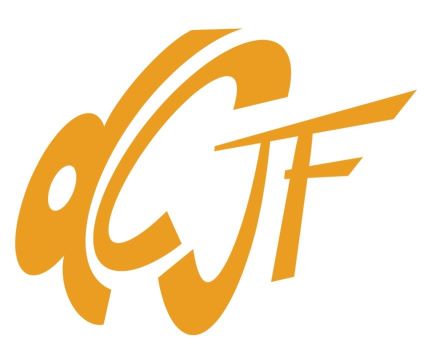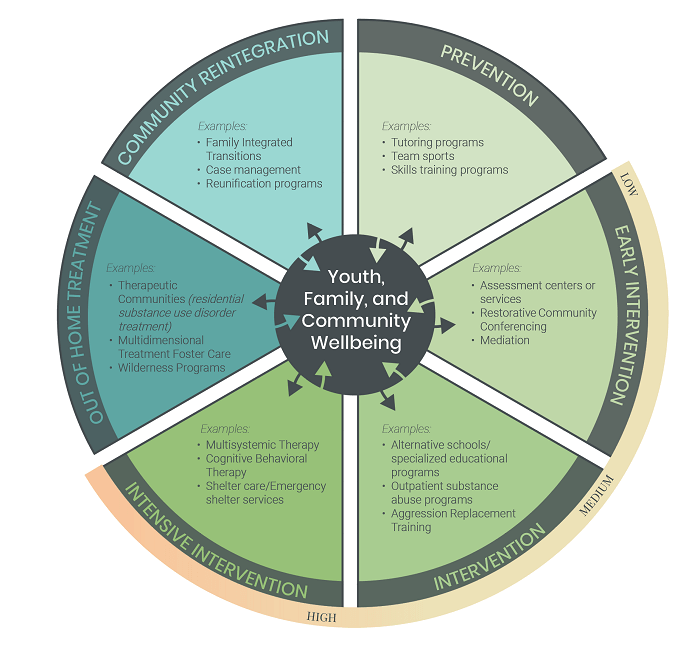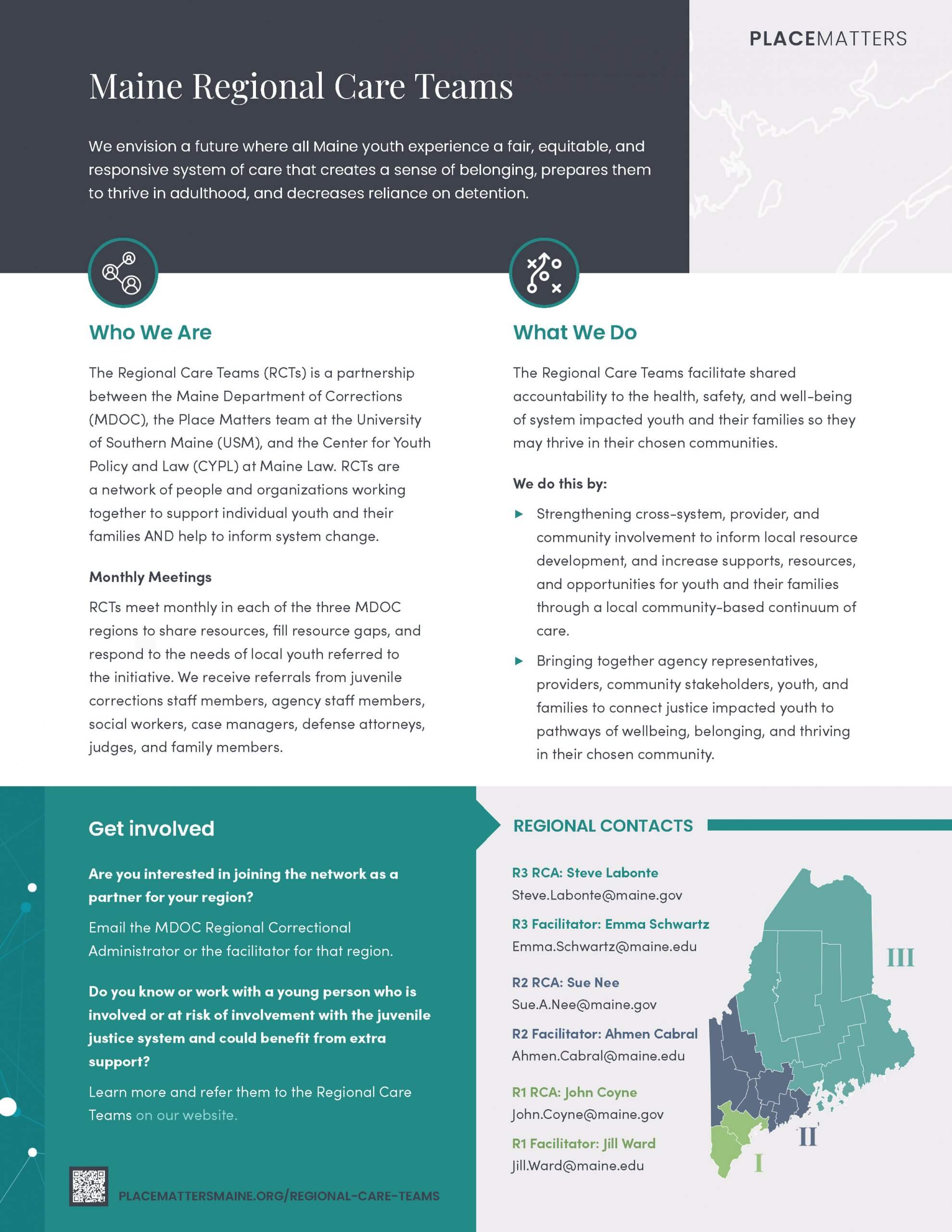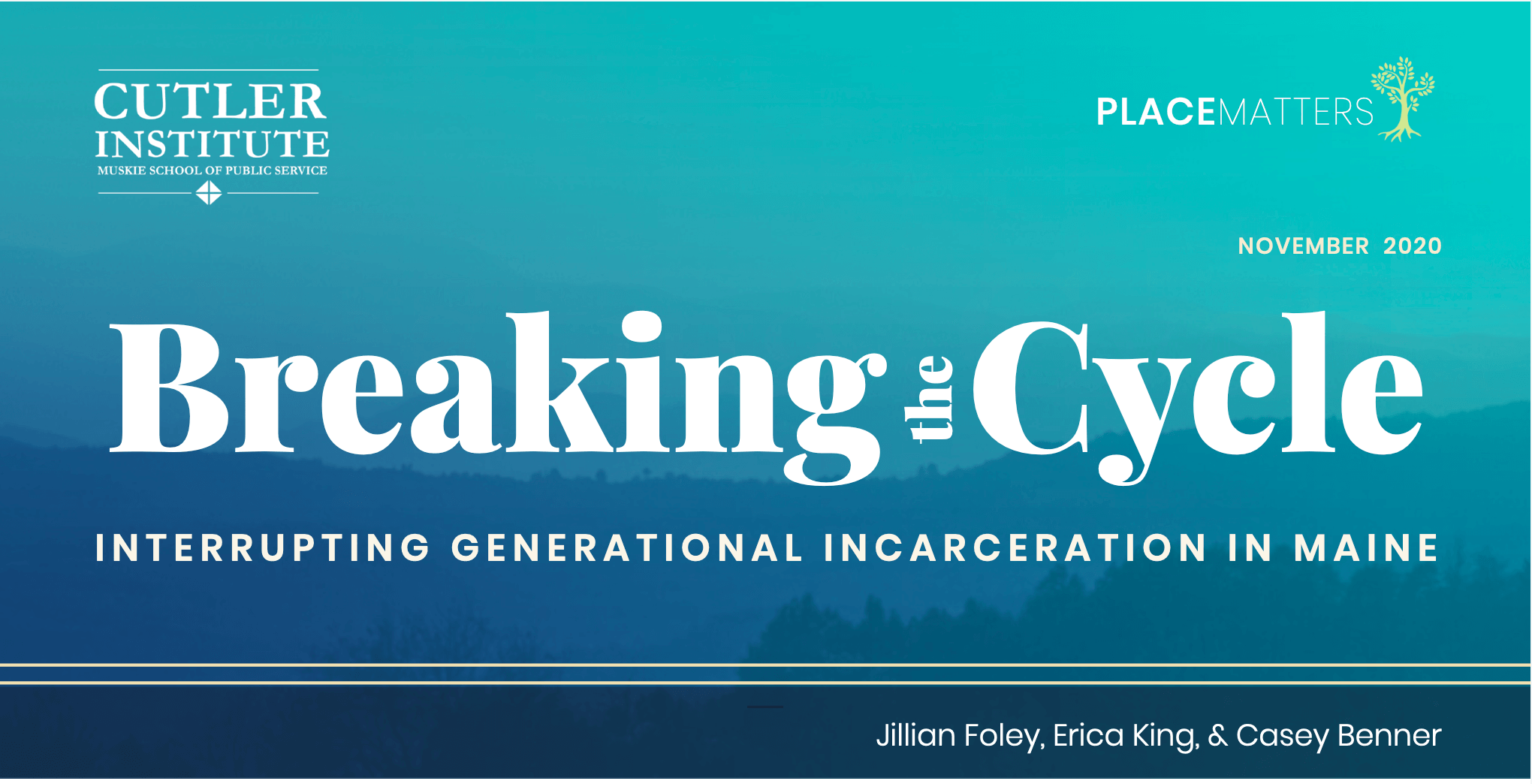Our Work
Community Centered Research
The Place Matters team uses community centered, participatory practices to conduct research whenever possible. Our goal is to use research and community engagement to lift up the assets, needs, and opportunities for Maine’s local communities and inform strategies for building a community-based system of care. This includes research focused on building a community-based continuum of care in Maine, and Asset Mapping in our local communities alongside our local partners. See more here.
Regional Care Teams
We are providing backbone, facilitation, research, and data support to this Maine Department of Corrections led effort to support individual system-involved youth and their families and to help inform broader system change. The Regional Care Network is made up of individuals from youth-serving agencies, systems, organizations and communities in each Department of Corrections (DOC) region who will help support and inform the Regional Community Care Teams as well as stay connected to the process and any outcomes and lessons learned. Additionally, the state Juvenile Justice Advisory Group (JJAG) has provided emergency COVID response funds to assist these teams in supporting youth in their community. More information here.
Gender Justice
We are working to build strategic alliances and collaborative strategies to advance gender equity and inclusion in Maine’s criminal legal system. In this work, we are focused on centering the children of incarcerated parents, and women, girls, and nonbinary individuals who have been impacted by the criminal legal system in Maine. Read more about this work here.
Affiliate Programs
Place Matters staff work with state, local, and national partners to develop and facilitate programs focused on creating supportive communities of belonging, learning, and connection. This includes the Young People’s Caucus (YPC) and the dee Clarke Justice Fellowship (dCJF) program. Read more about these programs here.




